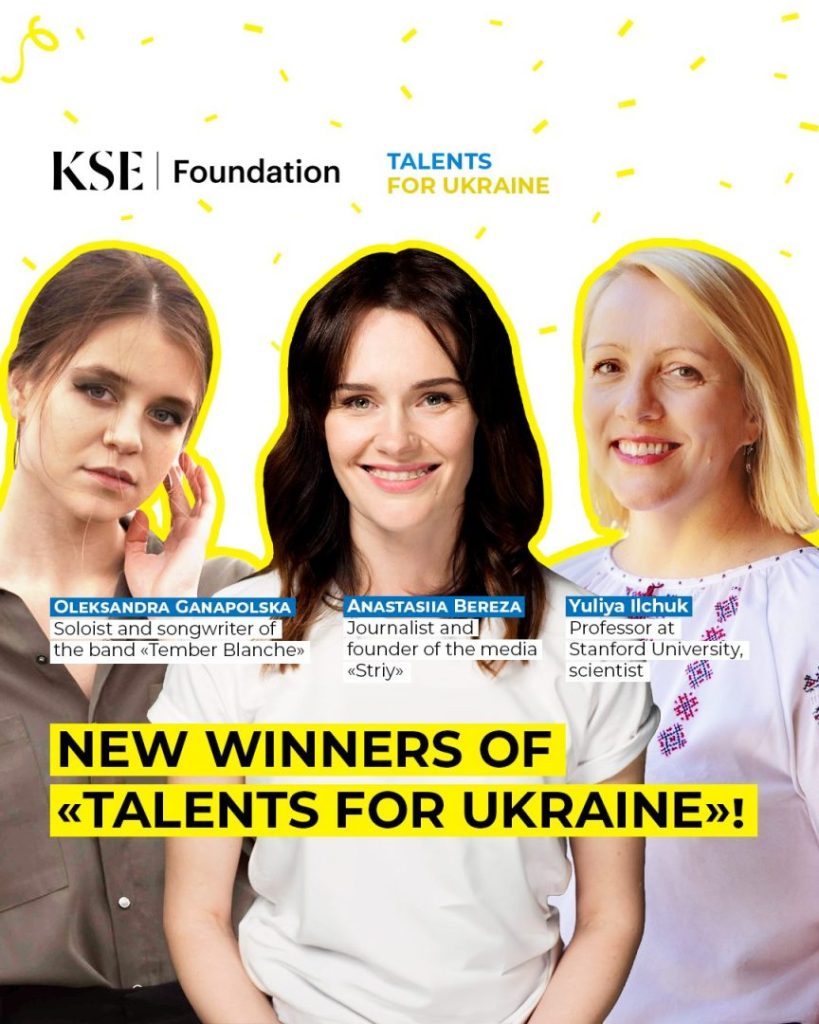
We are pleased to present to you our new winners of the #TalentsForUkraine program, who received grants for implementation and personal development from the KSE Foundation. The soloist of the band «Tember Blanche», a journalist and a Stanford University professor are among the winners.
Oleksandra Ganapolska is a soloist and songwriter of the band «Tember Blanche». In 2021, she became a participant in the «Voice of the Country» competition, getting into the team of the singer Monatik. Her original song «Vechornytsia» has gained more than 2 million views on YouTube, and later, together with the band «Kalush Orchestra», she released the clip «Kalushki vechornytsy», which received more than 20 million views. Last year, the girl became a finalist in the national selection of the Eurovision 2023 contest.
Anastasiia Bereza is a journalist, the founder of Striy media and the Heavenly Guard charity fund. The girl worked in the publications «Ukrainian Pravda», «Censor.net», «NV», «Correspondent», and in 2015 she became the first female participant in the program for seconding journalists to a military unit during hostilities. She founded the organization «Heavenly Guard», which honors the memory of fallen Ukrainian soldiers and helps their families. For this activity, she was included in the TOP-100 most influential women of Ukraine according to the version of Focus magazine based on the results of the first year of the war. Our winner is currently focused on the «Striy» project – media about fallen soldiers for the preservation of national memory and informational support for their relatives.
Yuliya Ilchuk is Stanford University professor, scientist, translator, head of the Department of Slavic Studies. She earned her Ph.D. in Slavic languages and literature from the University of Southern California. Yulia’s main research interests cover a wide range of issues of cultural exchange, interaction and borrowing between Ukraine and Russia. Her latest book project entitled «Disappeared: Memory, Temporality, Identity in Ukraine after Euromaidan» reviews the issues of memory studies – collective memory and trauma, post-memory, memorials and reconciliation.
More about the Talents For Ukraine winners
